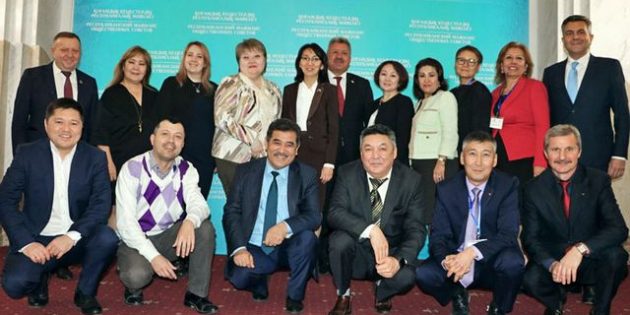An international consultative meeting “Interaction between the state and civil society organizations: past experience and future perspectives in the countries of Central Asia and Azerbaijan” started in Astana, Kazakhstan, in the framework of the Republic of Kazakhstan’s Majilis of Public Councils. The event is one of USAID’s “Partnership for Innovations – P4I” programs. It is implemented by the Association for Development of Civil Society (ARGO) together with key partners in the countries of Central Asia and Azerbaijan.
The meeting was held as a round table event. Representatives of Public Councils, leading NGOs from the countries of Central Asia and Azerbaijan, and international organizations took part in the meeting.
It is well-known that Public Councils in all the countries of Central Asia and Azerbaijan are a great platform for discussions, consultations, and joint approval of decisions made by state bodies and representatives of civil state organizations, as well as various professional and social groups.
Practical experience of Public Councils speaks for the high level of openness of state bodies to dialogue and transparency. An opportunity for social monitoring increases citizens’ trust in the state. The Public Councils help citizens to share their expectations and suggestions. On the other hand, the state bodies can ensure that legislation and policy work are in the best interests of the citizens,” explained “Partnership for Innovations” Program Director Kaisha Atakhanova during the meeting.
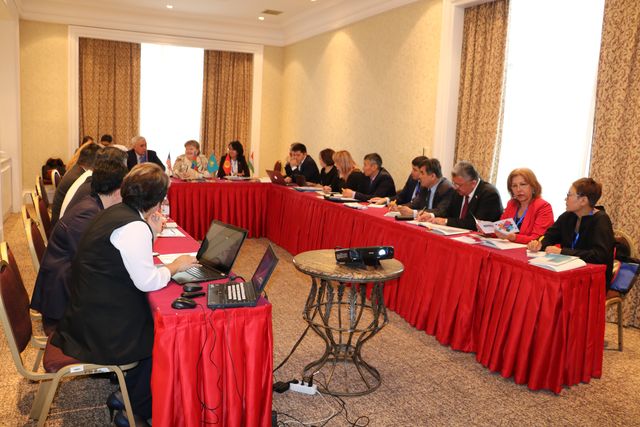 Due to the above, there is a necessity to establish an international dialogue platform in Central Asia and Azerbaijan. This platform will help to exchange knowledge, experience, and innovative approaches to help facilitate dialogue and social partnership between state bodies and civil society organizations. It will also promote ways of state support for NGOs and Public Councils, and strengthen their role and potential.
Due to the above, there is a necessity to establish an international dialogue platform in Central Asia and Azerbaijan. This platform will help to exchange knowledge, experience, and innovative approaches to help facilitate dialogue and social partnership between state bodies and civil society organizations. It will also promote ways of state support for NGOs and Public Councils, and strengthen their role and potential.
We should note that in the national plan of 100 concrete steps, Kazakhstan expects to implement five institutional reforms. Citizens and leaders of public organizations and non-commercial organizations expect important changes, including a new level of interaction between citizens and the authorities. This also includes construction of a social foundation for reforms promoting democracy. In the past two years, social innovations have become a focused topic of attention, in new approaches and efficient ways to involve citizens in the implementation of social policies, as well as development of the potential and strengthened role of the Public Councils in implementing public control, promoting transparent state principles and working with communities.
The law “On social participation” (from November 2013) in Azerbaijan regulates issues relating to participation of citizens in state governance. It regulates the order of establishing Public Councils and their activities. The Public Councils can be organized under central and local executive authorities as well as bodies of self-governance. The Public Councils advise the state executive bodies on holding consultations with communities on socially significant issues, and on writing and implementing state policies in corresponding fields for draft regulatory bylaws.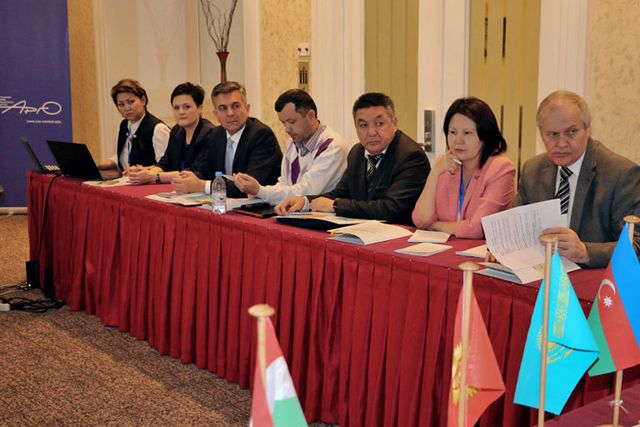
The law “On public councils of the state bodies” (PCSB) came into force in Kyrgyzstan in 2014 as the main way of social participation. To this day, the PCSB are being established in 14 state bodies. 22 state bodies have already completed establishment of PCSBs. PCSB operations at the national level are coordinated through the Coordination Council, which includes three working groups. In order to increase the role and efficiency of the public councils, the Government proposed a draft law “On public councils of state bodies” for public consultations.” One of the main purposes of the suggested amendments to the law is expansion of public councils’ authority to monitor and appraise the quality of state bodies’ anti-corruption plans.
In Tajikistan, the main platform for interaction between state bodies and civil society is the Public Council (PC). It is headed by the President of the Republic of Tajikistan (RT). Participants of Tajikistan’s Public Council include representatives of state bodies. 70% of members are NGO representatives, as well as unions of artists, representatives of ethnic minorities, political parties, religious organizations and social movements. The Republic of Tajikistan’s Public Council was established at the end of the 1990’s to resolve important political issues, to help end the civil war, encourage repatriation of refugees, normalize the political situation in the country and promote conditions for national unity.
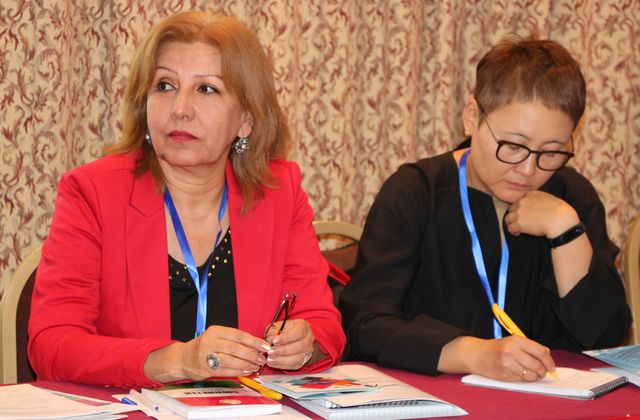
Currently, the Republic of Tajikistan’s Public Council and its affiliates under hukumats of all regions of the country resolve socially significant issues at the local level. National meetings of the Republic’s Public Council take part with participation of the President of Tajikistan, members of the Government and members of Parliament. The President of Tajikistan, during his speech commemorating the 20th anniversary of the Public Council in January 2017, underlined that it is necessary to strengthen the Public Council through participation of new leaders of NGOs, outstanding talented youth and women’s organizations. It is planned to review the Council’s status and improve it in accordance with the new phase of life of Tajikistan.
As such, there’s a need to improve the exchange of knowledge obtained from practical experience, and share innovative approaches, initiatives and methods of work in Central Asia. This should be done where social partnerships are activity taking place, as well as dialogue between the state and civil society organizations. Such dialogue is important to implement mechanisms of the state support to NGOs and Public Councils. It is important for Public Councils, experts and non-commercial organizations to establish an international dialogue platform to have an opportunity to study and exchange new knowledge, best practices and also implement them in their countries and societies.
Purpose: Establishment of an international dialogue platform on future perspectives of cooperation between civil society organizations and the state in the countries of Central Asia and Azerbaijan.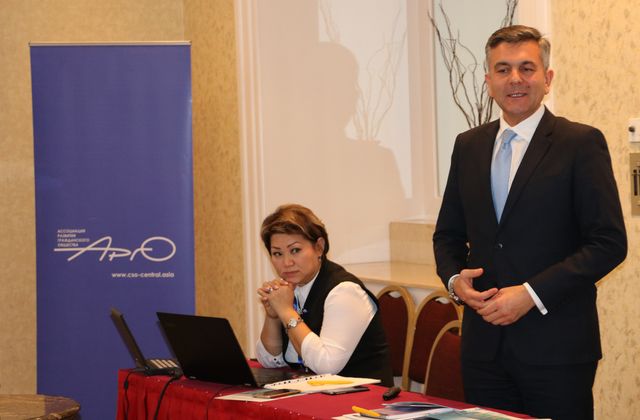
Tasks:
- Overview of situation in the countries of Central Asia and Azerbaijan: development of Public Councils and ways of state support for civil society organization.
- Discussion and exchange of experience: innovative approaches, best practices and lessons learned for promotion of issues related to the Public Councils and civil participation, ways of state support of civil society organizations’ activities in the countries of Central Asia and Azerbaijan.
Expected results:
Participants of the International Consultative meeting, representatives of state bodies, Public Councils, experts, and leading NGOs of Central Asia and Azerbaijan will gain a more complete vision of the key factors for development of the civic state. They will exchange best practices, innovative approaches to strengthen the potential and current role of Public Councils, ways of state support for NGOs. They will expand their capacity to resolve issues related to participation of citizens in the implementation of state policies.
